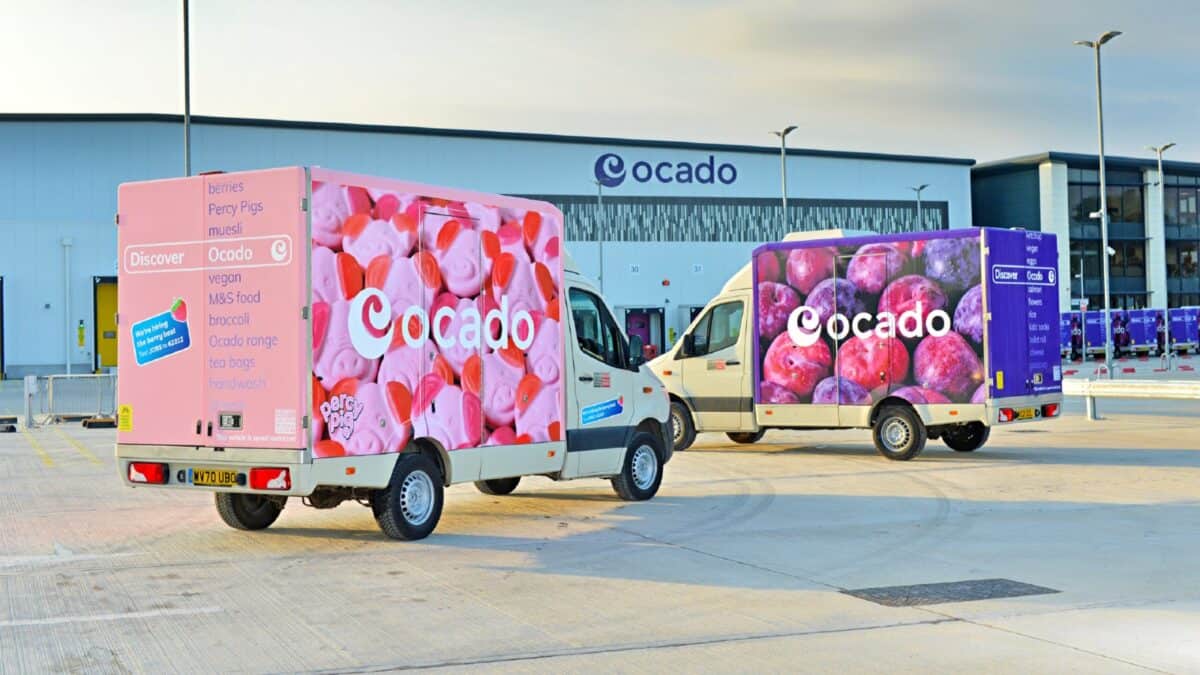The London market contains far fewer tech investment opportunities than its Stateside equivalent. Is Ocado (LSE: OCDO) one of them? Unpromisingly, the Ocado share price has plummeted 90% in four years. But the business does have a decent client roster, has grown substantially and a unique offering in a growing business sector.
Final results were published today (27 February) and so give a good opportunity to assess the current state of the business.
Two businesses in one
Imagine a tradesman who does work himself, but also rents his tools out to other people in the same line of business.
The tool rental business takes off and looks like it could be a huge success (just look at Ashtead). But to grow it requires lots of investment in everything from buying tools to warehousing them and administering rental payments.
So the tradesman continues to earn a living doing his own plastering and decorating. Meanwhile, although the tool rental business is growing, for now at least it actually sucks money up rather than spewing it out.
That, in essence, is how I see the Ocado business model.
It has set up and runs a joint venture for UK grocery home delivery (currently with Marks and Spencer but previously with Waitrose). We know that can make money because it does. Indeed, in the past Ocado overall even had a couple of profitable years on the back of this business.
But the bigger prize for the FTSE 250 firm is licensing its technology to other retailers. They do not just want the tech part, though. They want the whole caboodle, so Ocado has spent years building warehouses and logistics facilities to offer it to them alongside software.
That could set up long-term profitable relationships. But, just as in my example of the tradesman, it eats up capital upfront – a lot of capital.
Is it turning the corner?
Ocado ended last year with net debt of £1.2bn. I see a risk of further shareholder dilution in future if the loss-making business needs to raise more funds.
Revenue in the retail division grew 13% last year. Its adjusted EBITDA (earnings before interest, tax, deprecation and amortisation) were £45m, a strong improvement on the prior year.
The company does not provide a statutory profit breakdown for its divisions and I do not think EBITDA Is very useful – things like interest and tax can be real expenses. Still, I see clear value in the retail division.
As for the technology division, revenue grew 18% last year to £497m. Here too, adjusted EBITDA was up strongly, to £81m. This year, existing customers are expected to order more capacity and Ocado sees new customers signing on.
But while the company overall reported adjusted EBITDA of £153m, its pre-tax loss was £375m. Finance costs, depreciation and amortisation are real after all.
The latter two may not be current cash costs, though, but instead involve writing down payments made before. So Ocado’s cash flow position is improving. It expects to turn cash flow positive next year. If that happens, I think it could help the share price substantially.
At the current share price, Ocado could turn out to be a long-term bargain. But I think it is too early to tell, so will not be investing yet.





